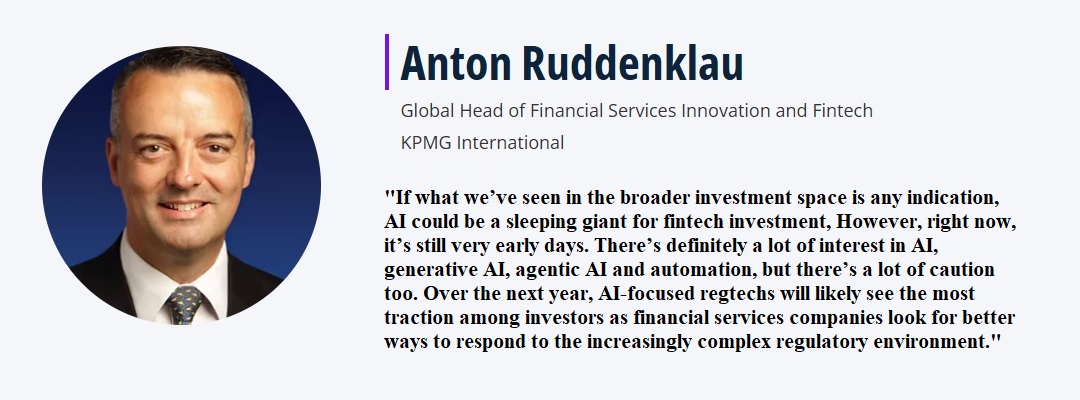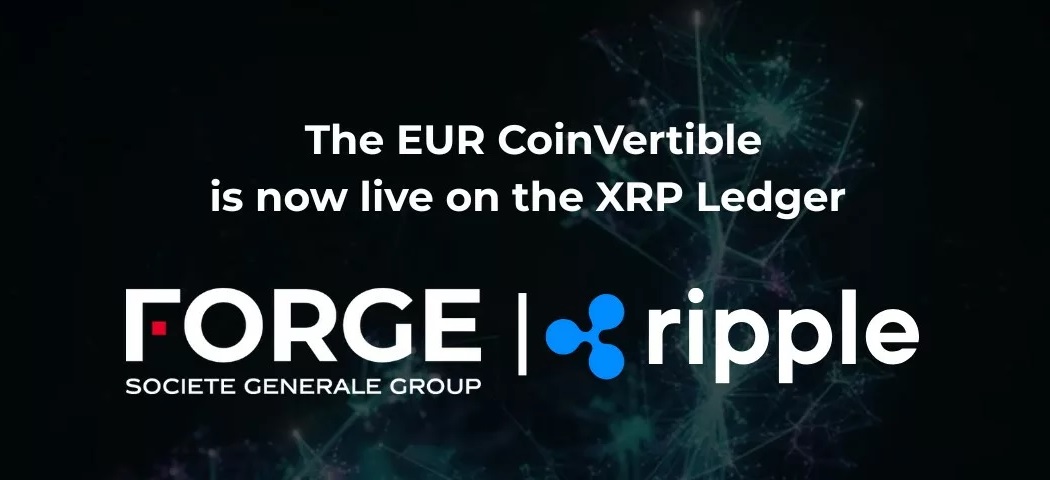Global fintech investment falls to seven-year low of $95.6 billion in 2024. Payments continues to attract largest fintech tickets.

Global fintech investment fell from $119.8 billion across 5,382 deals in 2023 to $95.6 billion across 4,639 deals in 2024. Americas accounts for $63.8 billion in fintech funding in 2024, including $50.7 billion in US. Investment in payments space rises from $17.2 billion in 2023 to $31 billion in 2024. Global M&A deal value nearly doubles from $7.4 billion to $14.2 billion between Q3’24 and Q4’24.
2024 was another difficult year for fintech, with just $95.6 billion of investment globally across 4,639 deals. Both global fintech investment and the number of deals fell to levels not seen since 2017, according to the Pulse of Fintech H2’24—a bi-annual report published by KPMG highlighting fintech investment trends globally and in key jurisdictions around the world.
The report is based on data provided by PitchBook Data Inc. A perfect storm of factors combined to soften investor appetite, including macroeconomic challenges, geopolitical conflicts and tensions, a year of elections in major jurisdictions, and concerns about valuations and the lack of exits.
The second half of the year was notably slower than the first, with investment falling from $51.7 billion in H1’24 to $43.9 billion in H2’24. A closer look at the results offered some optimism, however; between Q3’24 and Q4’24, global fintech investment rose from $18 billion to $25.9 billion. Both M&A deal value and VC investment also rose quarter-over-quarter, from $7.4 billion to $14.2 billion and from $9.7 billion to $11.2 billion, respectively.
Regionally, the Americas attracted the largest share of fintech investment in 2024—$63.8 billion across 2,267 deals, including $50.7 billion across 1,836 deals in the US. The EMEA region attracted $20.3 billion across 1,465 deals, while the ASPAC region saw $11.4 billion across 896 deals. At a sector level, the payments space attracted the largest share of investment ($31 billion), followed by digital assets and currencies ($9.1 billion), and regtech ($7.4 billion).
„It’s been a rough year for nearly everyone—fintechs, corporates, VC and PE firms—given the breadth of challenges and uncertainties in the global market. With only a handful of exceptions, no one wanted to pull the trigger on the largest deals—which have long been a mainstay in fintech investment,
But there’s a lot to be positive about heading into 2025. Many critical elections are behind us and investment and deal activity is beginning to pick up. We are starting to see more deals coming through because of interest rate cuts in different jurisdictions and the lower cost of funding. However, we will have to wait and see if the changing world trading conditions impact inflation, interest rates and consequently these positive signs of market change.” – said Karim Haji – Global Head of Financial Services, KPMG International.
2024 Key Highlights
Global fintech investment fell from $119.8 billion across 5,382 deals in 2023 to $95.6 billion across 4,639 deals in 2024.
The Americas attracted $63.8 billion in fintech investment across 2,267 deals in 2024, of which the US accounted for $50.7 billion across 1,836 deals; the EMEA region attracted $20.3 billion across 1,4645 deals, while the ASPAC region attracted $11.2 billion across 896 deals.
Global M&A deal value fell from $60.2 billion to $49.6 billion between 2023 and 2024; while H2’24 was softer than H1’24, M&A deal value rose from $7.4 billion to $14.2 billion between Q3’24 and Q4’24.
PE investment declined significantly, falling from $10.5 billion in 2023 to just $2.6 billion in 2024, while VC investment saw a modest drop from $49.2 billion in 2023 to $43.4 billion in 2024.
Payments was the strongest area of fintech investment globally in 2024, with $31 billion in investment compared to just $17.2 billion in 2023; other sectors that saw investment rise year-over-year included digital assets and currencies —from $8.7 billion to $9.1 billion, regtech—from $4.4 billion to $7.4 billion, proptech—from $1.9 billion to $3 billion, and wealthtech—from $190 million to $400 million.
Corporate VC-participating investment globally fell from $26 .9 billion in 2023 to $19.6 billion in 2024; only the EMEA region saw corporate investment in VC deals rise—from $5.1 billion to $5.8 billion year-over-year. The Americas saw CVC drop from $13.8 billion to $9.9 billion, while ASPAC saw CVC investment drop from $8.0 billion to $3.9 billion.
Payments continues to attract largest fintech tickets
The payments sector continued to drive the largest share of fintech funding globally in 2024, accounting for $31 billion in investment—up from $17.2 billion in 2023. A large share of this investment was driven by consolidation and defensive plays rather than by companies looking to scale, including the two largest deals of the year—the $12.5 billion buyout of a majority stake in US-based Worldpay by GRCR in H1’24 and the $6.3 billion take private of Canada-based Nuvei by PE firm Advent International in H2’24. In addition to the Nuvei deal, H2’24 saw several other sizeable payments deals, including the $1.6 billion acquisition of US-based Transact Campus by Roper Technologies and a $788 million VC raise by Philippines-based Mynt.
Digital assets and currencies beginning to see a resurgence
The digital assets and currencies space attracted $9.1 billion in investment globally in 2024—the highest total ever outside of the outlier years of 2022 and 2023. A large share of this investment focused on digital market infrastructure, tokens, and digital assets. During H2’24, four of the five largest deals occurred in the Americas, including Stripe’s $1.1 billion acquisition of stablecoin infrastructure company Bridge, a $525 million raise by Praxis, and a $200 million raise by Current—all based in the US—and a $210 million raise by Canada-based Blockstream. A $100 million raise by UK-based Crytocoin accounted for the largest deal in the EMEA region, while an $80 million raise by Singapore-based Partior was the largest deal in ASPAC. With the new US administration expected to be crypto friendly, it is likely the digital assets and currencies will continue to see increasing interest and investment heading into 2025.
Americas sees VC investment drop to six-year low despite record high in Canada
The Americas saw total fintech investment drop from $77.6 billion in 2023 to a six-year low of $63.8 billion in 2024. The US accounted for $50.7 billion of this funding—a decline from $72.8 billion in 2023. Outside of the US, Canada saw a record high of $9.5 billion in fintech investment during 2024—driven in large part by the buyout of Nuvei—while investment in Brazil softened from $2.3 billion to $1.4 billion. Fintech investment dropped slightly from $32.8 billion to $31 billion between H1’24 and H2’24. On a more positive note, investment almost doubled between Q3’24 and Q4’24, rising from $10.8 billion to $20.2 billion. Within the US, fintech investment dropped from $28.8 billion to $21.9 billion between H1’24 and H2’24, although it also rose from $9.9 billion to $11.9 billion between Q3’24 and Q4’24.
Fintech investment in EMEA region sinks to $20.3 billion—lowest total since 2016
Fintech investment in the EMEA region fell from $27.6 billion across 1,833 deals in 2023 to just $20.3 billion across 1,465 deals in 2024. H2’24 also saw a significant drop compared to H1’24—from $13 billion across 820 deals to just $7.3 billion across 645 deals. While the UK accounted for nearly half of all fintech investment in the EMEA region during 2024 ($9.9 billion), the total was a significant decline compared to 2023 ($13.6 billion). Germany also saw fintech investment drop between 2024 and 2025—from $961 million to a ten-year low of $815 million. The Middle East saw the most positive results in EMEA during 2024, with fintech investment rising from $1.2 billion to $2.2 billion year-over year.
Asia-Pacific region sees lowest level of fintech investment in a decade
Total fintech investment in the ASPAC region fell from $14.6 billion in 2023 to $11.4 billion in 2024—the lowest level of fintech funding seen in the region since 2014. India accounted for the largest share of this total ($4.1 billion), led by a $1.5 billion raise by WSB Real estate partners in H1’24. Total fintech investment in China dropped from $2.6 billion to just $687 million between 2023 and 2024, while Australia saw fintech investment nearly double from $840 million to $2.1 billion; fintech investment in Japan held nearly steady year-over-year at $660 million.
A sense of optimism for 2025
With interest rates declining in many jurisdictions and election uncertainties finally easing, there’s a cautious sense of optimism within the fintech market heading into 2025. The average time between deals has also lengthened significantly, from approximately fifteen months in 2022 to twenty-four months in 2025—the longest it has been in the last decade—which could make 2025 a critical year for deal-making as fintechs look to ensure their continued operations.
While the payments space will likely remain the biggest ticket of investment globally, digital assets and currencies are well positioned for an upswing in investment—particularly when it comes to market infrastructure, digital tokenization, and stablecoins. AI is also expected to remain a key priority for investors, with regtech and cybersecurity-related solutions likely to see the most interest in H1’25.
„If what we’ve seen in the broader investment space is any indication, AI could be a sleeping giant for fintech investment, However, right now, it’s still very early days. There’s definitely a lot of interest in AI, generative AI, agentic AI and automation, but there’s a lot of caution too. Over the next year, AI-focused regtechs will likely see the most traction among investors as financial services companies look for better ways to respond to the increasingly complex regulatory environment.„- said Anton Ruddenklau – Lead of Global Innovation and Fintech, Financial Services, KPMG International.
Dariusz Mazurkiewicz – CEO at BLIK Polish Payment Standard
Banking 4.0 – „how was the experience for you”
„To be honest I think that Sinaia, your conference, is much better then Davos.”
Many more interesting quotes in the video below:









